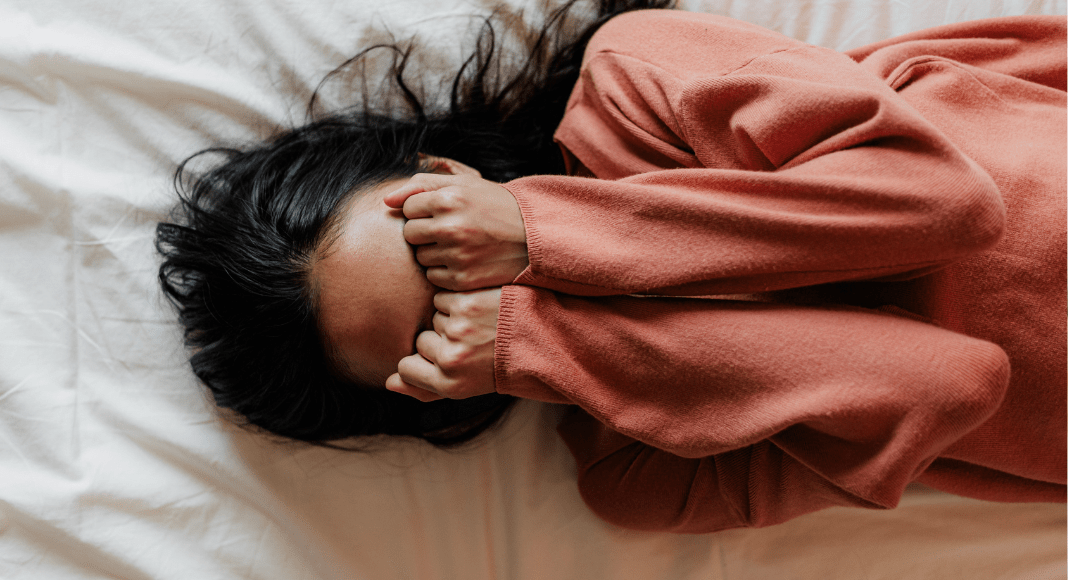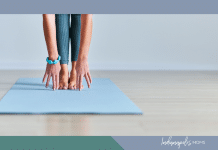
“I started Zoloft about two months ago,” she shared.
“How has it been,” I asked.
A loved one and I were talking about mental health and our families. I was still wrestling with racing thoughts, bouts of depression, totally forgetting details or occasionally specific words, and the symptom not many picture when thinking of anxiety, rage. Hearing this loved one share their story nudged me to act.
My symptoms had been ongoing since my pregnancy, two years before this conversation. Afterward, I found myself motivated like I hadn’t been before. “Why not me? I asked. Why shouldn’t I get help too?”
If you, like me, often put yourself on the back burner or even behind the stove with the dust bunnies, this is that nudge for you too. You and your family deserve the best version of yourself. And if not for yourself, do it for them.
You may ask, “why did she silence those cries for help for so long?” I found myself asking that later. If the raging mom moments (sorry to my dear husband) weren’t bad enough, relatives also noticed my irritability, panic attacks, anxiety, and struggle to cope with the pressures of life. What did cause me to wait?
Before pregnancy, I enjoyed distance trail running, a reasonable diet, a supportive network of family and friends, a meaningful career, and many other elements that contribute to a healthy life. I had minor anxiety, but my lifestyle and a good dose of endorphins counteracted it. All that came to a screeching halt while pregnant.
I felt so exhausted that I could barely walk half a mile, much less run. I came home from work and immediately fell asleep on the living room couch. For most of my pregnancy, I could only stomach breadsticks, yogurt, and lemon-flavored foods. Stressors like job changes and house hunting lead to more fights than usual in our marriage. I found myself driving away in the middle of an argument before seeing family. I hoped having the baby would help things return to normal.
I had an induced labor that was pretty textbook. Bad tearing, which had been one of my fears, did happen. But, all the postpartum depression and “baby blues” information I had read up on didn’t seem to fit. I bonded instantly with little Blake, the flood of overpowering love and emotion I felt was more than I could’ve imagined. This was unlike the detached or numb feelings my friends with classic postpartum depression symptoms shared with me. The closest I could find was fellow writer Lauren Palmer’s words on postpartum psychosis, but I knew what I was experiencing felt different.
Just a week after leaving the hospital with baby Blake, I had an emergency middle-of-the-night hemorrhage, and a rushed postpartum surgery. It was scary. Josh called 911 after he saw all the blood, and we raced to get little Blake into his car seat, knowing in the middle of flu season, he wasn’t technically allowed in hospitals. The operator suggested we drive as we lived close to the hospital and could get there faster than an ambulance. I watched the snowflakes swirl around as they fell from a black February sky. I prayed we wouldn’t skid on the ice as we sped along.
The procedure led to an overnight stay. The worries were so many that I couldn’t name them all. I worried the bottle given to Blake that day would cause him to stop latching and breastfeeding (this happened to a close friend), and I worried about going home and remembering everything. I was so hormonally up and down and sleep-deprived that I couldn’t mentally process anything. I only wanted sleep. As soon as we got home, the nightmare memories gave way to that warm bubble of snuggles and cuddles with Blake, who was mercifully the most mellow baby ever.
Josh had to go right back to work the day we came home. He had come home alone the night before I was discharged and wiped all the blood off the rocker, boppy pillow, and wood floors. I think this process scarred him the most.
I was so happy and sleepy, but deep down, I knew that my racing thoughts, doomsday angst that randomly hit without warning, and blasts of rage leveled at my husband (over both little and big things) would need to be dealt with. But life kept us moving forward. Blake was angelic, and that helped us bond and make memories with us three. I used the rest of my generous maternity leave to finish our house hunting with frequent nursing and nap breaks for Blake, and we closed and moved into our house six days before my return to work. There were some meltdowns, all just the stress, I told myself.
Work was a nice distraction. I went out to lunches. I continued to work on sustainability projects that would impact the city’s future. I found pieces of myself I had lost in the feedings, diapering, and baby things all day that seemed to swallow my identity and the me I had been before.
But those racing thoughts, anxiety, blasts of anger, and dark foreboding feelings surfaced again as I quit my job to stay at home full-time. I had hoped the relaxed, baby-led schedule would help. Just a few weeks into my new role, we were floored by the rise of Covid-19. At the same time, our son appeared to have some severe speech delays. We began virtual speech therapy, wore masks, and did the March quarantine. Two weeks alone. But the pandemic dragged on for months after.
The isolation was miserable. My husband and I both enjoy having social lives together and apart. It felt as if the fabric of our world had completely ripped away, replaced by the suffocation of lonely life in a pandemic. We both had untreated trauma from the night of the surgery and the surrounding days. Covid lockdowns and closures of everything, including church-made zoom calls or grocery store meetups with family, one of our only ways of connecting with loved ones and the world itself.
At the end of the summer, my husband got help for an addiction that had been a partial coping mechanism for all the pain of that year. But, throughout that long process, I felt again that it wasn’t my time to get better. I told myself I would be the strong one.
The doomsday thoughts couldn’t be silenced, but they could be muffled in my quest to help our son find his voice. The potential diagnosis and constant E.N.T. and other visits led to googling and compounded fear of the terms and illnesses on the table. One E.N.T. suggested Blake had a fatal genetic disease and referred us to a neurologist. I took Blake to that neurologist just hours before I drove an hour-long drive to pick up my husband from completing his detox program in Anderson, Indiana. Thinking my son might be dying on the drive felt so bleak I couldn’t even cry. Numbness set in and stayed for a few months.
On top of all this, my insurance coverage ended when I quit my job. My husband had a job change right around the time I realized I needed help. We purchased what was basically a disaster insurance plan, which turned out to barely cover any of the things we needed. I used all kinds of logic to talk myself out of getting help. Here are some phrases I remember telling myself: But I don’t feel bad every day. I will feel better after a nap. I’m strong. But I don’t feel “blue.” I bonded with Blake instantly. We’re in a pandemic.
What changed my mind? That loved one’s simple admission:
“I’m taking medicine, and it’s helping so much.”
So I did it. I scheduled the appointments.
The O.B.G.Y.N. shook her head after hearing how long I had felt so low. She said, “let’s get you feeling better first and work on the rest soon.” After a thyroid test to rule some previous issues out, I was prescribed Sertraline/Zoloft. Another thing that really helped was my sister Laura, a nurse, who suggested a full blood panel to check which vitamin levels were low. I had to self-advocate for the blood tests, but they were worth it.
It turned out I was very, very low in Vitamin B vitamins, which the doctor said can also significantly contribute to anxiety, low energy, mental fog, and depression.
The combination of supplements and prescription helped take the edge off my anxiety and helped me cope for a full calendar year. The story continues, but I’ll save that for another post.
If you are waiting for a sign to get help for postpartum anxiety or depression, this is it. Or if you know a loved one in need of help from postpartum challenges, sometimes the best thing you can do is be present and tell them you are there and you love them. Help talk through whatever is preventing them from seeking care. Maybe remove obstacles if you are in a place to help that way. A family member and friend walked us through some other healthcare options and helped with medical bills. We found a good marketplace plan and have used it since. That eased my anxiety so much, knowing we could afford the medical costs.
Sometimes just being vulnerable about your struggle is all that’s needed. Hearing that loved one share what helped them was enough to help me take the next step. I hope this post helps give you a nudge to act. And I hope you know that it can get better.








